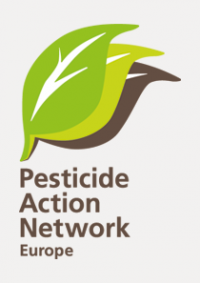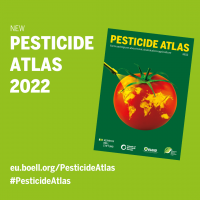Reports
Europe's Toxic Harvest: Unmasking PFAS Pesticides Authorised in Europe
Executive Summary
We reveal the presence of eternal pollutants (PFAS) among pesticide active substances. These hazardous substances are exempted from the forthcoming European restriction, while their use in agriculture is rising. Immediate action is needed to get them banned.
Pesticides: Play it safe!
We asked IPSOS to survey consumers about their views on pesticide use. This report presents the findings of a public opinion poll in six Member States of the European Union: Denmark, France, Germany, Poland, Romania and Spain. The six countries were chosen to give a good indication of attitudes across the EU as a whole in all its geographical, climate, political and economic diversity. The survey was conducted in August 2023 by the European Public Affairs team of the market research agency IPSOS.
Glyphosate is polluting our waters all across Europe
The current levels of glyphosate use in Europe have resulted in widespread contamination of the environment, with the herbicide being detected in human urine, house dust, soils, and surface waters. Scientific evidence indicates that the concentrations of pesticides, including glyphosate, found in the environment negatively impact the quality of our water resources and put aquatic ecosystems at risk.
PAN Europe - Activity report 2022
Pesticide Action Network (PAN) Europe is part of a larger network of over 600 non-governmental organisations, institutions and individuals in more than 60 countries worldwide. PAN Europe is the regional centre for Europe alongside four other autonomous regional centres; North America, South America, Asia-Pacific and Africa. Today, PAN Europe counts 47 members among consumer, public health, and environmental protection organisations, women’s groups and educational associations, from 28 European countries of which 23 are in the EU.
Under the Surface: A Deep Dive Into EU Water Pollution Monitoring and Management Practices
Despite some improvements, water pollution remains a key environmental and sanitary challenge across the EU. More than twenty years after the adoption of the Water Framework Directive, less than 40% of Europe’s rivers, lakes, and coastal and transitional waters and around 70% of groundwater bodies hold good chemical status. Yet, that does not give the full picture of the state of our waters as chemical status is only assessed against a small subset of substances and largely does not take into account the effects of chemical mixtures.
Belgium, the kingdom of pesticides
The European legislation governing the marketing of pesticides clearly defines the obligations of the Member States when assessing the risks and authorising pesticides. States, including Belgium, must put the protection of the population before the interests of production-oriented agriculture and refrain from authorising products that could harm human and animal health or the environment.
Weed management: Alternatives to the use of glyphosate
While the use of synthetic pesticides in agriculture has helped to increase food production, this has occurred at great cost to the environment, natural resources, and human health. The 2017 United Nations (UN) report of the Special Rapporteur on the Right to Food highlights the adverse impact of pesticide use on human rights, human health (workers, their families, bystanders, residents, and consumers), and the environment. The report also reveals that intensive agriculture based on pesticide use has not contributed to reducing world hunger.
PAN Europe - Activity report 2021
In 2021, PAN Europe put a lot of energy in making sure that the European Commission Green Deal was converted into a specific legislation including the objective of reducing the use and risk of pesticides by 50% until 2030 and the use of the more hazardous pesticides (the candidates for substitution) by 50% until 2030.
Banned pesticides still in use in the EU
Pesticide active substances can be banned at EU-level if they do not meet the safety criteria to protect human or animal health, the environment or ground water. However, the Europe regulatory framework allows Member States to grant 120-day derogations for the use of pesticides that are not authorised. We analysed the EU Commission database on the so-called ‘emergency authorisations’ for 24 normally non-approved active substances between 2019 and 2022. We found no less than 236 derogations given to 14 substances from that list.
EU Pesticide Atlas 2022
In beer and in honey, on fruit and on vegetables, on playgrounds’ grass, in urine and even in the air – traces of pesticides used in agriculture can be found everywhere. That pesticides deteriorate human health, biodiversity, water, and soil is not a new insight by any means. As early as 1962, biologist Rachel Carson published her globally acclaimed book “Silent Spring” in which she described the harmful effects of pesticide use. Her work has been groundbreaking for the environmental movement and led to the ban of highly toxic chemicals such as DDT.

